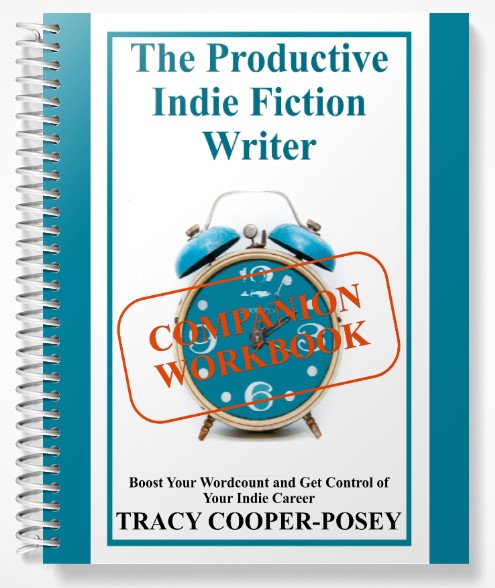
Most productivity books and gurus tend to focus on time management — finding more time and how to squeeze more into that time, and also, inevitably, how to choose your priorities because no one can do it all, these days.
Graham Allcott, author of How to Be a Productivity Ninja, comes at productivity in a completely different way. It’s an interesting concept, and made for authors.
Your Second Brain
Have you heard the expression “Your Second Brain”?
Actually, there are two arenas where this phrase is used. Most medical experts have, for some time now, been aware that your gut functions as a second brain, which affects your overall health as much as your first brain does.
In the productivity arena, your second brain is the system that thinks for you, so you don’t have to…because we’re only human and forget things.
I can’t track down a source to credit for the concept of a second brain system, but I’ve been around productivity experts for years, and I can track the evolution of the idea. Tiago Forte over at Forte Labs has really grabbed the concept and run with it, but he’s not the first to use it. Graham Allcott also refers to a second brain in his book, with a slightly different emphasis. It’s possible that Allcott isn’t the first to use it, either.
Remember Filo-Fax? Palm Pilots? Even your calendar, contacts and task list function as a very primitive second brain.
A true second brain steps up from those basics. David Allen’s Getting Things Done system is an example of this higher level of functionality. But it has a few weaknesses, especially for authors, primarily arising because Allen devised his system for non-writers, and before the Internet really got going.
These days, we’re all drowning in the information overload. Allcott’s system addresses that.
And that’s where a second brain comes to the fore.
There are systems out there that deal with *just* managing the information that comes at you. Zettelkasten is one of the earliest and possibly the most famous one, and there are variations upon this. Tiago Forte’s Building a Second Brain system might only include data management. I can’t check on this because his course costs $2,000 USD, last time I checked (the price goes up with every term). He does have a book coming out in August 2022, and I’ll be curious to read it.
Allcott comes at it differently. He combines your tasks lists, calendar and all the information sources that deluge you every day: Blog posts, emails (especially emails), web sites, on-line groups, all the books you read, documents, snail mail, everything. He has devised a system that lets you capture all that information, no matter what the source, and deal with it in a sensible way that takes the pressure off you to remember. It prevents you from saving every byte of possibly useful information and promptly forgetting it forever.
All of it functions as your second brain, one that doesn’t forget or overlook anything.
This is particularly useful for writers. Even fiction writers build up an enormous cache of saved posts, blogs, documents, and more that we acquire for research. We have even more books (both fiction and non-fiction), podcasts, notes we’ve taken from courses, webinars and lectures, and notes we’ve clipped from author groups and associations, recordings and notes from conferences…. You get the idea.
Allcott’s system deals with all of it. And unlike David Allen, he doesn’t give you just one way to do it. He actually encourages you to use what systems you already have in place and only discard them if they’re really not working for you. He shows you how to examine your current system, figure out where it’s not working for you, and change it so it does.
Daily, weekly and monthly reviews are a large component of the system, which was a piece that I was missing from my own second brain system–and I learned from Allcott’s book that I already had most of the pieces in place. Reviewing is where the gold is found. It’s not a onerous process, either.
If you struggle to deal with the flood of information, or have mountains of notebooks collecting dust, check out Allcott’s book. It’s well worth a read.


Write More, Faster Than Ever Before
The Productive Indie Fiction Writer Workbook now available for pre-order!
